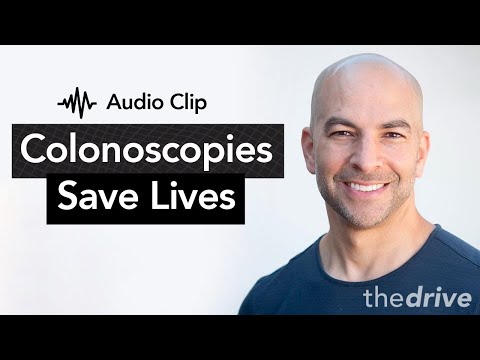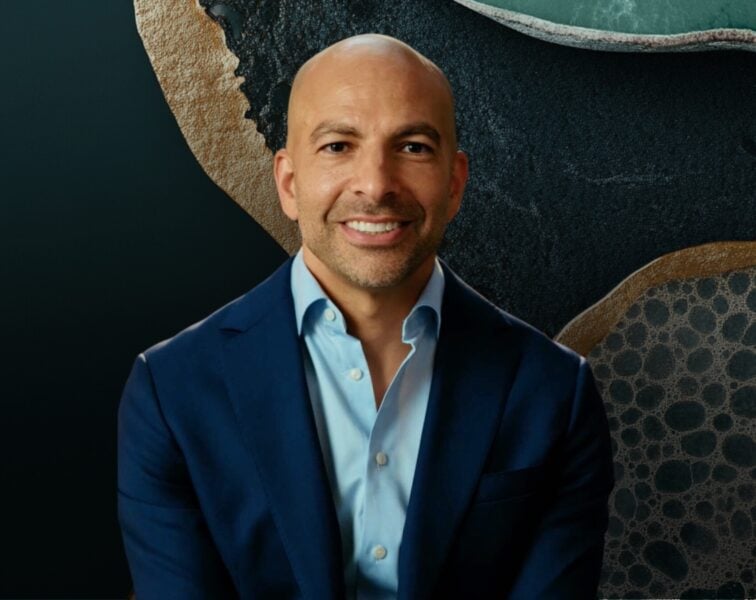This audio clip is from episode #202 – Peter on nutrition, disease prevention, sleep, and more, originally released on April 11, 2022.

Show Notes
Cancer: how aggressive screening for gastrointestinal cancers could save lives [24:30]
Screening for gastrointestinal cancers
- Peter has an increased aggression when it comes to screening for gastrointestinal cancers
- For perspective, in 2020 there were about 600,000 people in the US that died of cancer
- 170,000 of the 600,000 were in the GI system (so mouth to anus)
- Some of those GI cancers are very difficult to screen for.
- Pancreatic cancer, for instance, we don’t really have a great way to screen for it, and that’s why we use things like diffusion-weighted image MRIs, liquid biopsies, as ways to basically pursue those things
- See episode #61 with Raj Attariwala where they talked about diffusion-weighted imaging MRI for cancer screening
The good news is that there are a lot of cancers for which we can directly take a look at the epithelial surface that is going to become cancerous
- And there is no part of that that is more important than the colon
- The esophagus, the stomach, and the colon probably represent about 40% of those GI cancers
- Liver and intrahepatic, bile duct, and pancreas are probably also about 40%, and those are much harder to screen for
- But when you look at organ-specific sites, colon cancer is generally in the top three leading causes of death for both men and women
Bold and controversial opinion from Peter: “Nobody should ever die from colon cancer.” (same for esophageal and stomach)
- The reason for that is that the progression from non-cancer to cancer is visible to the naked eye, through the transition of nonmalignant polyp to malignant polyp
*Thought experiment: if you did a colonoscopy on somebody every single day of their life, they would never get colon cancer because, at some point, you would see the polyp, you would remove it while it is non-cancerous, and they would not get cancer
- So… how do you turn that thought experiment into a real life idea?
- You have to ask the question: what is the shortest interval of time for which a person can have a completely normal colonoscopy until they can have a cancer?
- There’s no clear answer to this question — some case reports that it can happen in as little as six to eight months
- Most people would agree that if you had a colonoscopy every one to two years, the likelihood that you could ever develop a colon cancer, while maybe not zero, is so remote that you could effectively take colon cancer off the list of the top 10 reasons why someone dies of cancer
Peter says: “It’s for that reason that I’m very aggressive when it comes to this type of screening, which also includes upper endoscopy…you basically get for free the esophagus and stomach when you look at the entire colon, rectum, anus.”
What are your costs/downsides to more frequent screening?
- Financial costs — it’s not cheap
- Risk of the sedation — not zero risk but very small
- Risk of perforation — also incredibly small risk
Ideal frequency?
- “I can’t tell you yet what the ideal frequency, but it’s much more frequently than what’s being done today”
- It’s not every 5 to 10 years, it’s probably every one to three years
*Additional Resources:
- Episode #61 with Raj Attariwala
- Weekly email from Peter: Colorectal cancer screening
Age to start colorectal cancer screening:
- Peter screens patients starting at age 40 if they have no history of colon cancer
- This is earlier than most doctors recommend so you may have to push your doctor (and insurance company) to get this done
- Tip – send them Peter’s weekly email



